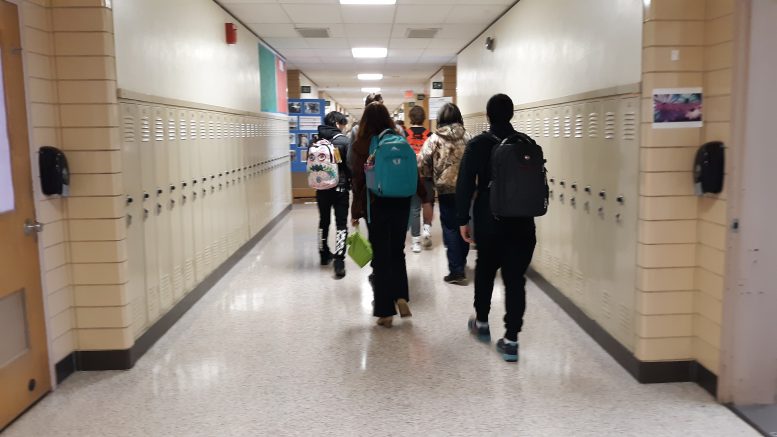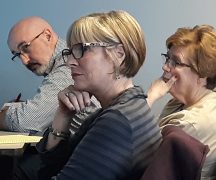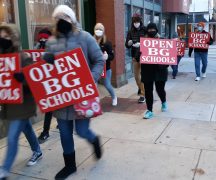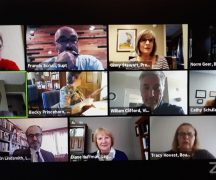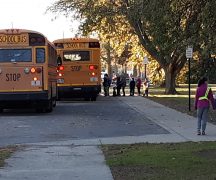By JAN LARSON McLAUGHLIN
BG Independent News
It was a year ago that Bowling Green City School District voters corrected a couple glaring issues in the district’s financial planning. Voters resoundingly supported ballot issues converting two five-year operating levies into continuing levies.
That was a big start to improving the health of the school district’s finances – but it was just the beginning, according to David Conley, from Rockmill Financial Consulting.
Conley met virtually with the school board Wednesday evening to talk about the next possible steps for the board.
The district has one remaining operating levy that is temporary and must be renewed every five years. That poses a liability for the district, and requires that a larger fund balance be held.
That income tax issue will be back on the ballot either later this year or in 2022. So the school board is faced with three decisions:
- To make the issue continuing or keep going back to voters every five years.
- To combine the levy with a buildings issue.
- To address a future tax mix between income tax versus property tax.
The income tax brings in about $3.9 million annually to the school district.
“That’s a significant revenue stream to the district,” Conley said.
And Conley noted the discussions during school buildings meetings about the district relying more on income tax and less on property taxes.
“There was a strong desire to fund at least a portion of the buildings with an income tax,” he said.
While the district already depends on both property and income taxes, Conley posed the question, “Is the current mix the right mix for Bowling Green?”
Conley presented some good news to the board about the district’s current financial status.
“The district’s financial condition is the best it’s been in years,” he said.
Much of that good news can be attributed to the “very frugal” spending of the district and the levy risks being mitigated by two of the three being converted into continuing issues.
The district’s combined general and capital project fund balances currently add up to nearly $21 million. That is a very healthy “safety net,” he said.
“You will be potentially sitting on an amount of money that you have more flexibility over than you have had in the past,” Conley told the board.
Conley suggested that the board discuss what is a reasonable balance in the general fund for a safety net. Then the board should talk about how the excess balance should be used.
“Discuss this openly with the community,” he said.
Other topics covered by Conley during the workshop included:
COVID-19 concerns
The financial impact of COVID is still uncertain. “We’re in uncharted territory,” he said.
The district saw a reduction in income tax revenue last year because of COVID, possibly due to the huge impact of the pandemic on Bowling Green State University, according to Conley.
It remains to be seen how much the district will benefit from COVID-19 grant assistance, and the American Jobs Plan, which is President Joe Biden’s infrastructure bill. The plan calls for $100 billion to be invested in modernizing the nation’s school buildings and school bus fleets.
Rover pipeline
The pipeline is continuing to appeal its valuation, Conley said. But in the meantime, the school district is receiving more than $1 million a year from Rover. That is less than half of the amount that the pipeline will be ordered to pay if it loses its appeal.
However, the district must be prepared to refund some of the revenue if Rover wins its appeal, Conley said.
Based on the school board’s decision, the pipeline tax revenue is all being put in the capital projects fund. That money can be used to build new facilities or pay for items that have a lifespan of five years or more.
Other considerations
The board should consider the creation of a finance/audit committee made up of two board members, the superintendent and treasurer. Board member Ginny Stewart asked about the inclusion of a couple community members on the committee, and Conley said that would be acceptable.
The district should create financing options for building needs – whether they are property tax, income tax, or both.
Conley suggested that public workshops be held.
“Do it in a very open and transparent way,” he said.
And the board may want to study the issue of property tax refunds since the district’s balance is so robust, Conley said.
Stewart asked Conley about the district’s last five-year plan that predicted deficit spending.
“Deficit spending is almost guaranteed for a school district,” with Ohio’s school funding system, Conley said.

